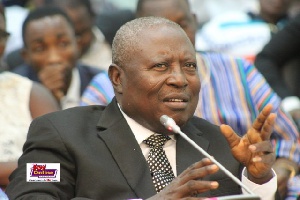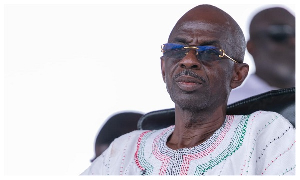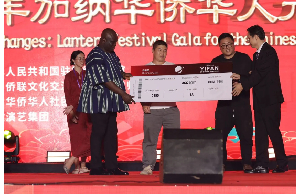Understandably, ignorance is a disgraceful disease. However, it is curable to its victims who seek treatment for it. This goes to confirm the veracity of the godly or biblical saying, “For lack of knowledge, my people perish” - Hosea 4:6.
Honestly, I was one of the many a Ghanaian questioning the dilly-dallying by Hon. Martin Amidu, the Special Prosecutor, to prosecuting the perceived corrupt public and private officials who masterminded and orchestrated thieveries of all sorts to plunge Ghana into worrisome artificial poverty with its attendant nationwide joblessness, armed robberies, and insecurity.
Nevertheless, when I raised my concerns about the seemingly public inaction by the Special Prosecutor with a lawyer I am familiar with while in Ghana recently, he offered me free tutorials in Civil and Criminal Law to explain why the Special Prosecutor needs ample time to conduct his investigations prior to indicting and arraigning any suspected corrupt official. Before proceeding any further, let me explain any legal jargon so far employed as many are those that may be unfamiliar with such words or terms.
Indict means: (of a grand jury) to bring a formal accusation against, as a means of bringing to trial; to charge with an offense or crime.
Arraign means “to call or bring before a court to answer to an indictment”
In my free tutorials as aforementioned, I was made to understand that criminal trial is different from civil trial or suit. In a civil lawsuit, verdict can be delivered on what is called preponderance, meaning, whose narration, either that of the plaintiff or the defendant, can be believed depending on the little evidence submitted to court as lay before the judge.
What does preponderance mean in law? “The greater weight of the evidence required in a civil (non-criminal) lawsuit for the trier of fact (jury or judge without a jury) to decide in favour of one side or the other. This preponderance is based on the more convincing evidence and its probable truth or accuracy, and not on the amount of evidence”
What is preponderance probability? “A word describing evidence that persuades a judge or jury to lean to one side as opposed to the other during the course of litigation. In many states, criminal trials require evidence beyond a reasonable doubt. But in civil trials, evidence is required only by preponderance of the evidence”
Nonetheless, in criminal lawsuits, credible evidence beyond reasonable doubt must be submitted to the court. Should there be an iota (a very small quantity) of doubt raised in the proceedings of criminal trial, the whole case will end up being thrown out. Subsequently, one needs to get their facts and evidence 100% doubt-proof before embarking on a criminal lawsuit.
This is the reason why Hon. Martin Amidu is taking time to scrutinize any facts and evidence lay before him regarding any suspected corrupt public or private official before indicting and arraigning them. What will be the benefit to the nation should he rush to prosecute suspected corrupt government and public/private service officials only to end up having the courts or judges throw out any case he brings against them for want of sufficient doubtless evidence or proofs? When that happens, will Ghanaians not start accusing him of incompetence, or connivance with the culprits to set them free because he was, or is, an NDC member?
There is a precedent here. When the NDC came to power under the late President Professor Evans Atta Mills, the NDC rushed to prosecute some members of the outgoing former President Kufour’s NPP government for corruption (embezzlement of public funds and State assets), especially on CAN 2008 held between 20 January and 10 February 2008. CAN 2008 was simply the Africa Cup of Nations (CAF) football tournament, officially CAN (French: Coupe d'Afrique des Nations).
Do we expect the Special Prosecutor to disgrace himself by suffering the same fate as the prosecutors in the trial of suspected corrupt NPP officials by rushing to prosecute suspected corrupt officials without enough doubt-free evidence?
The little said here is enough to convince any doubting Thomas about the credibility of the Special Prosecutor to continue to exercise patience with him. He will surely successfully prosecute some suspected public officials to calm the tempers of Ghanaians who are demanding results from the creation of his office now.
Rockson Adofo
Opinions of Wednesday, 17 April 2019
Columnist: Rockson Adofo
Understanding the Special Prosecutor’s delay in prosecuting suspected Corrupt Public/Private Officials
Entertainment














